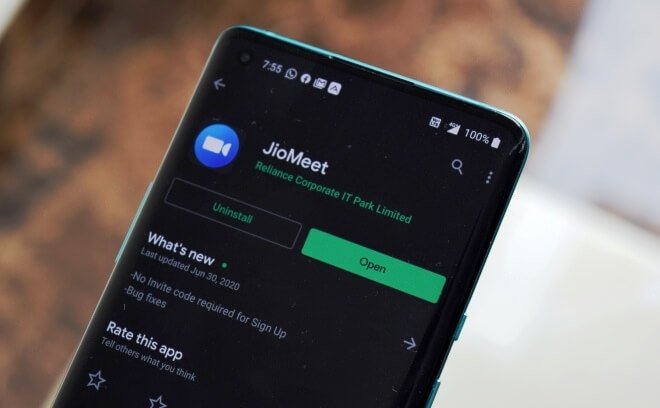After raising billions of dollars from the likes of Facebook and Intel for its digital business, billionaire Mukesh Ambani’s Reliance Industries launched JioMeet, a video conferencing app with unlimited free calling, in competition to Zoom
The JioMeet video conferencing app was made available across iOS, Android, Windows, macOS and web since the evening of July 2.

According to Reliance Industries, JioMeet supports HD video and audio call quality with up to 100 participants and offers features like screen sharing, meeting schedule feature and more.
But unlike Zoom, it does not impose a 40-minute time limit. Calls can go on for as long as 24 hours, and all meetings are encrypted and password-protected, the company said.
In comparison to Zoom’s $15 per month charge for meetings lasting more than 40 minutes ($180 for annual plan), JioMeet is providing the same functionality and more for free, which translates to a savings of ₹13,500 to the host per year, company sources said.
Features of JioMeet
According to the app features listed on Google Play Store, JioMeet offers easy sign up with either mobile number or e-mail ID and allows creation of instant meetings. Zoom allows sign up only with e-mail ID.
The meetings, in HD audio and video quality, can be scheduled in advance and details shared with invitees, it said, adding JioMeet allows unlimited meetings per day.
Each meeting is password protected and the host can enable ‘Waiting Room’ to ensure no participant joins without permission. It also allows for the creation of groups andsingle-click calling/chatting.
Other features include ‘Safe Driving Mode’ for use while driving, multi-device login support for up to five devices and seamless switching from one device to other while on call. Unlike Zoom, JioMeet users can switch from one device to another without dropping out of the call.
Unlike in Zoom, where users cannot expand a participant’s video, JioMeet users can expand any participant’s video or shared screen video by a double tap.
JioMeet has two advanced meeting settings. One, it allows participants only from the host’s organisation. If enabled, only users from the host’s organsation can join that meeting, eliminating potential snoops from other IDs. Two, it does not allow guest users — if enabled, every user will be required to sign up before joining the meeting hence restricting anonymous users from joining the call.
While Zoom shows four participants at a time on a single mobile screen (for others, users need to scroll through multiple pages), JioMeet shows nine.
